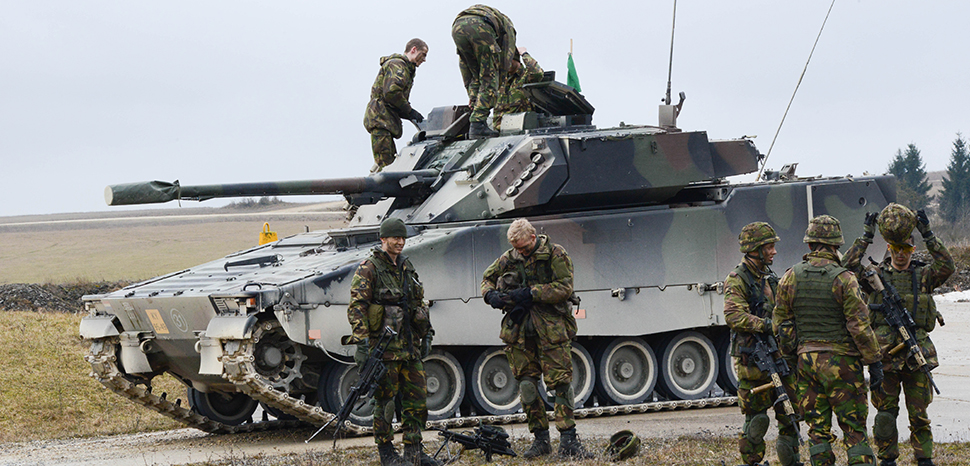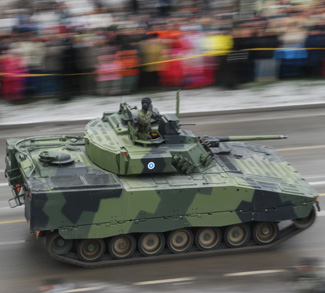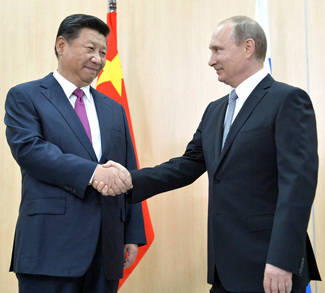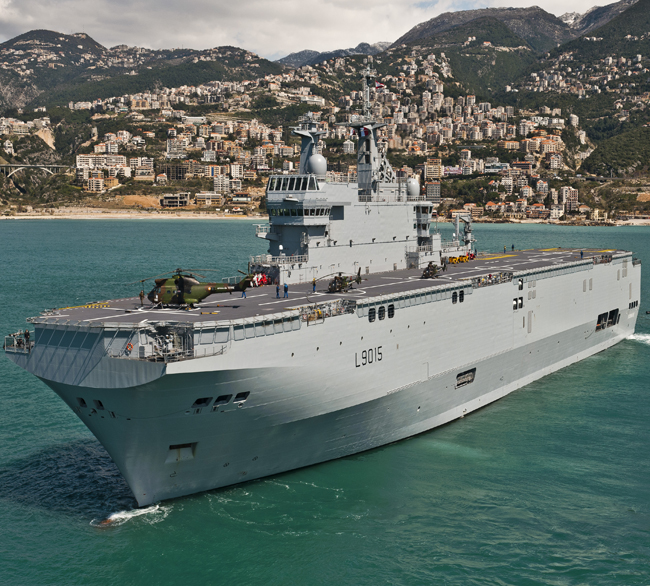The chaotic US withdrawal from Afghanistan has rekindled the issue of EU hard power, broadly speaking, or military capability, specifically. No doubt, Europeans were caught off guard in Afghanistan, frustrated and scrambling for answers as to how the EU should respond. President of the European Commission, Ursula von der Leyen, has for a while been contending that the EU must learn the ‘language of power.’ Similarly, EU Council President Charles Michel called for the EU to have greater decision-making autonomy and greater capacity for action in the world, but how does that fit within the EU’s geopolitical situation? This contribution seeks to assess how events in Afghanistan impact the feasibility for the EU’s strategic autonomy within the geopolitical context. To do so, this piece reflects on debates in recent publications and statements made by officials and experts.
Firstly, the rapid withdrawal of the US from Afghanistan has exposed the European Union to its dependence on the US. Already at the beginning of NATO intervention in Afghanistan, allied European militaries were subordinated to US leadership. However, US leadership is increasingly focusing on containing China. Europeans have a right to be concerned when we consider that the evacuation of European personnel and their partners could not have happened without the US military support. After all, Europeans alone could not secure the Kabul airport to help with the evacuation. The implication is that the Europeans might be seen as lacking the competence to engage in crisis management.
This, of course, is complicated because there is little appetite in the EU for military interventions. On paper, the EU has multinational battalion-sized battlegroups whose capability is adequate for missions such as the evacuation of personnel from Afghanistan. Yet, deployment faces bureaucratic and financial hurdles. Funding, in particular, is an issue, but specific details as to who is in charge are not publicly available. Nonetheless, the funding issue reflects a deeper problem of lacking the will to deploy troops. On the other hand, minor powers or weaker sides can win wars, often due to a stronger resolve but also because of higher tolerance for pain. Europeans were not willing to endure the pain in Afghanistan as they never questioned Biden’s pullout decision back in April.
Secondly, the EU’s engagement elsewhere will come under the same scrutiny as has the failure to stabilize Afghanistan. The EU mission in Mali, for example, has been suffering from some similar failures as Afghanistan, in particular, prioritization of security over political and development issues. Consider how the EU has already taken a more significant role in fighting Sahel terrorists on the ground rather than addressing the root causes of terrorism. The situation in Libya also remains fragile. Therefore, the Europeans must be prepared to deal with extremist groups whose existence could be bolstered by directly or symbolically profiting from the Taliban’s rule and the EU’s mismanagement. Perhaps the EU has somewhat learned from its mistakes. For example, the EU has finally chosen to engage the Taliban administration without recognizing it, as that will give the EU some opportunity to implement its promised regional aid package and to promote human rights. If it also fails in the Sahel, the EU may also have to recognize the merits of more inclusive political settlements.
Thirdly, events in Afghanistan come at a time when Europe’s strategic autonomy is still in a nascent phase. The European Union still has not clearly indicated what its ambitions should be. Surely, the EU has its traditional tools, such as strategic investments or economic sanctions. With those, the EU can enforce norms and international standards. However, for a major global player, this is not enough. Nor is it enough to simply offer new ideas. One recent concept in the EU has been a creation of a new rapid-response force that could be deployed in the name of the EU, one that would be based on a qualified majority voting system. Whether such an idea really adds anything to the EU Battlegroups or the NATO Response Force (NRF) is questionable. Finally, the latest idea is for the EU to have a common threats perception and a strategic culture.
Debates on EU’s strategy, especially autonomy, picked up when the EU’s Global Strategy of 2016 was published. It was a good start, but more was needed to truly capture a strategic culture. In response, the EU has been developing an idea of a Strategic Compass that contains four pillars – crisis management, resilience, capabilities, and partnerships. The plan is to create real goals and objectives for the next five years in the area of security and defence. After all, the EU is facing multiple challenges, and what it needs are clear ideas on how to deal with them in line with the EU interests and values. The Strategic Compass hopes to nudge the states towards a common understanding and have an action plan. What differentiates the EU’s 2016 Global Strategy from the Strategic Compass is that the latter will have greater input from the member-states. Implementation, after all, requires the complicity of the member-states.
The problem is that from a geopolitical perspective, the EU’s major security players, France, Germany and Poland, have different ideas on the EU’s strategic autonomy, strategic culture, and threat perceptions. Member-states may now be in the driver’s seat of the Strategic Compass, but their geopolitical factors make it unlikely that centrifugal forces will be overcome. These factors can be observed among the major EU military players (known as the “Weimar Triangle”) whose perspectives will play a vital role in the fate of European defence.
France’s push for EU autonomy
France is now the EU’s biggest military power and the second biggest EU economy. It also sees itself as a great power, thereby acting like one. Within the EU, France has been trying to reform EU fiscal and budgetary rules to its own benefit, a move that has clashed with German interests. In defence and military aspects, France is a spoiler of NATO, and therefore it strives for lesser dependence on the US. To achieve that, it strongly supports a more autonomous EU, one which could be seen as a geopolitical power. Such an approach is known as “Euro-Gaullist continentalism.” The French tradition, in fact, has been to foster some anti-American sentiment.
To French President Emmanuel Macron, it was clear that the Afghanistan debacle meant that the EU needed a defence force of its own to avoid “the Chinese-American duopoly, the dislocation, the return of hostile regional powers.” By having a more autonomous EU force under French leadership, France would benefit from force multiplication while limiting Germany. In a nutshell, France needs cooperation to sustain its grand ambitions, but it prefers to create frameworks under its own leadership rather than of other great powers. The Americans will keep a watchful eye on whether France manages to pressure other middle-tier EU powers to sidle away from Washington.
Poland in stark opposition to France
Poland is a supporter of NATO and a spoiler of the EU, and not only in terms of defence and military. Poland has been visibly clashing with the EU over the rule of law and norms, and more subtly over the future of the EU defence. Much of Poland’s position is based on its historical threat perceptions against Russia and Germany. Naturally, it prefers the well-established security provided by the US over an uncertain one provided by the EU. However, this was not the case during the leadership of a Europeanist, Donald Tusk, when Poland briefly tried to shore up European defence.
From 2015 onwards, the conservative Law and Justice party (PiS) refocused its relations on the US, especially given the EU’s criticisms of law and norms in Poland. Even recently, shortly after the events in Afghanistan, Polish President Andrzej Duda called for closer ties between NATO and the EU. Also reflecting on the EU’s Strategic Compass, Duda was very clear that he wanted the document to be “in harmony with the policies of NATO’s Strategic Concept.” Such a statement is a clear preference of Poland to counter Russia and thus keep US forces in Europe while “denigrating the CSDP as complementary at best.” This stands in contrast to the preferences of France, and somewhat Germany as well. In short, Poland perceives the United States as the only loyal and reliable military power.
Germany’s middle ground
Lastly, Germany is a de facto leader of the EU due to its biggest economy. Its economy is mainly dependent on exports within the European single market. Unlike France, Germany has been more conservative regarding European fiscal policies, rejecting initiatives such as a banking union (initiated by France). In the defence field, Germany is a shirker in both NATO and the EU. Afghanistan events seem to have deepened these rifts. The German economy has been experiencing a general slowdown. When we add the refugee crisis to that, plus additional refugees that could be coming from Afghanistan, there could be growing discontent, something that parties such as the Alternative for Germany have been using to their advantage. Recent German elections have shown a very divided electorate, so any government will be limited in implementing reforms to appeal to the majority of voters.
As one of the most significant players in the EU, Germany will have a major impact on the future of the EU, including security and defence. Germany will likely seek integration that benefits its economy but shirk away from sharing risk with other EU member states. In practice, this means that Germany is seeking to avoid a potential EU defence policy, especially if it would be dominated by France. Moreover, any policy with higher public spending and deficit levels would be unpopular. Of importance is also that Germany does not want to be perceived as a military threat to its neighbours. According to Federica Mogherini, French desire is for strategic autonomy and German preference is for “cooperative autonomy” and thus an impediment to a strong strategic culture. Overall, it is less likely that events in Afghanistan will create an impetus in Germany on common threat perceptions.
Geopolitical impasse
In all likelihood, the EU member states may agree on some diluted version of common threat perceptions, such as was the need to evacuate EU citizens and their allies from Afghanistan, or the idea that the EU should retain some influence by having representatives in Kabul. When stronger initiatives to bolster the EU have been introduced, states such as Poland have weakened them by inviting others. Consider how the US, Canada, and Norway recently joined a Dutch-led military mobility project within the PESCO framework, arguably showing signs that both the EU and NATO may benefit. However, including NATO was a clear Polish and possibly German preference. Furthermore, the EU member states may object to other countries joining, which means that there could be an impasse when the core interests of EU members are threatened.
Overall, events in Afghanistan may have provided an important impetus for the EU to address its shortcomings and become a more serious geopolitical player. Still, it does not seem that common threat perception within a strategic culture will address core security issues. After all, similar optimism was present after Russia invaded Crimea, Brexit, and during Donald Trump’s mandate. If those forces failed to move the EU towards greater strategic autonomy, neither will the events in Afghanistan.
The views expressed in this article are those of the authors alone and do not necessarily reflect those of Geopoliticalmonitor.com




